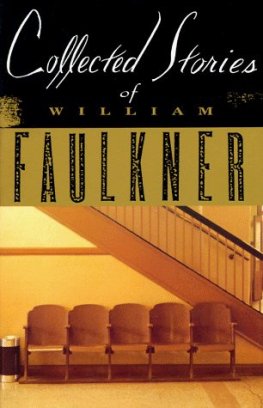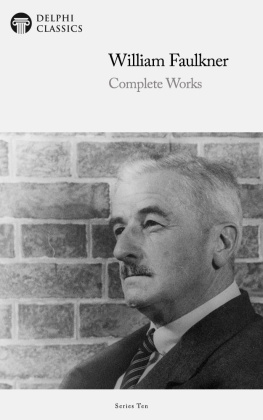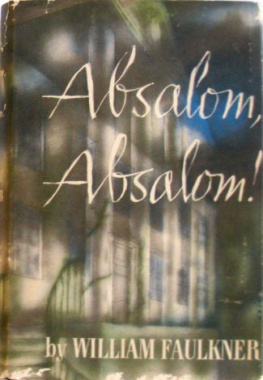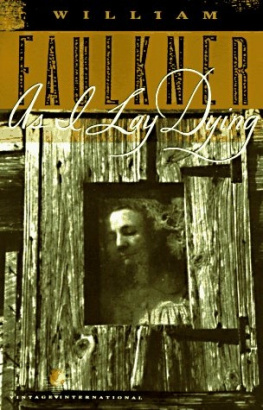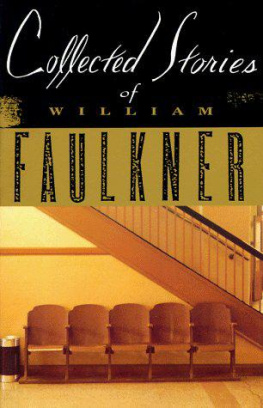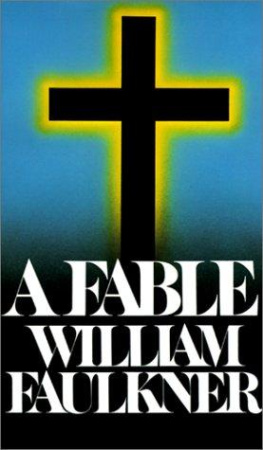WILLIAM FAULKNER IN HOLLYWOOD

Edited by R. Barton Palmer and Matthew H. Bernstein
WILLIAM FAULKNER IN HOLLYWOOD
SCREENWRITING FOR THE STUDIOS
Stefan Solomon

2017 by the University of Georgia Press
Athens, Georgia 30602
www.ugapress.org
All rights reserved
Designed by Erin Kirk New
Set in 10/14 Chapparal
Most University of Georgia Press titles are
available from popular e-book vendors.
Printed digitally
Library of Congress Cataloging-in-Publication Data
Names: Solomon, Stefan, 1986author.
Title: William Faulkner in Hollywood : screenwriting for the studios / Stefan Solomon.
Description: Athens : The University of Georgia Press, [2017] |
Includes bibliographical references and index.
Identifiers: LCCN 2017003985| ISBN 9780820351148 (hardback : alk. paper) | ISBN 9780820351148 (ebook)
Subjects: LCSH: Faulkner, William, 18971962Motion picture plays. | Faulkner, William, 18971962Radio and television plays.
Classification: LCC PS3511.A86 Z972725 2017 | DDC 813/.52dc23
LC record available at https://lccn.loc.gov/2017003985
FOR MONICA
Contents
List of Illustrations
Acknowledgments
In completing this book, I am indebted to two people most of all. In its former life as a dissertation, this project was guided by Julian Murphet, whose insight and bold approach to all of his work sets an example I continue to follow. Julian prompted me to continue my interest in Faulkners writing and encouraged me to conduct the archival research that was so integral to this work. A conference and book that emerged from our collaborative work were together crucial to my growth as an early-career academic. I have been lucky enough to have worked closely with another Faulkner scholar, Sarah Gleeson-White, whose generosity and thoughtful approach to her work have been an inspiration for me in my scholarly journey over the last decade, from her supervision of my undergraduate thesis until today. Working with Sarah on her own research into Faulkners Hollywood career gave me an unparalleled opportunity to discuss my project with a colleague and friend on a regular basis, and I am sure it has made all the difference.
In my visits to archives in California, Missouri, and Virginia, I was ably supported by Julians Discovery Project grant from the Australian Research Council, by grants from the University of New South Waless Postgraduate Research Support Scheme, and by the Faulkner Societys John W. Hunt scholarship. The archives would not be the same without the archivists, and I owe a great deal to them: Ned Comstock at the University of Southern California, whose enthusiasm and depth of knowledge is well renowned; Sandra Joy Aguilar and Jonathan Auxier at the Warner Archives, who were incredibly helpful before and after my visit and made my stay there enjoyable; and Robert W. Hamblin and Christopher Rieger at the Center for Faulkner Studies at Southeast Missouri University, whose dedication to their work is remarkable. Thanks should also go to Cindy Chang and Roni Lubliner at NBC Universal for allowing me to publish excerpts from the Sutters Gold screenplay, and to Shannon Fifer at Warner Bros. Entertainment, Inc., for allowing me to publish excerpts from screenplays written for both Warner Brothers and RKO.
At the pointy end of the writing process, my work was made possible by a visiting research fellowship from the University of Sydney, where I was again able to call on Sarah as my mentor. Her in-depth comments and sharing of resources were needed at this stage of the project, and I wont forget it. At the Australian National University, I was helpfully granted the status of visiting fellow, which enabled me the time and space to complete the lions share of the work. Here I must thank Monique Rooney and Russell Smith for their kindness in hosting me and providing me with opportunities to engage with colleagues from the School of Literature, Languages, and Linguistics, which helped to push the book in new and interesting directions. At this point I was lucky enough to have the advice and criticisms of Ben Robbins, an expert in the study of Faulkner and film, and his feedback kept me on my game and helped to improve much of this book.
Thanks go to Walter Biggins, senior acquisitions editor at the University of Georgia Press, who had faith in the project from the beginning and was incredibly patient with me as I revised the book. Thanks, too, to Thomas Roche, who guided me through the editing process and was extremely helpful in explaining the different steps involved. For the existence of The South on Screen as a book series, I am grateful for R. Barton Palmer and Matthew H. Bernstein. Barton also provided kind and encouraging feedback on the first draft of my manuscript, for which I am thankful. Another anonymous reader gave my work the critical interrogation it deserved, spurring me on to rewrite much of the book, and even to reconsider some of my conclusions. I am certain that the insights of this reader have led to a much better end result than I would have arrived at on my own. I know now that the advice of my copyeditor, MJ Devaney, will stay with me for some timeher attention to detail was phenomenal, and her comments and suggestions have made for a far more coherent book.
I would like to thank my parents, Debra and Matthew Solomon, for taking visible joy in my achievements and in the support and love they have given me all my life. And finally, I dedicate this book to Monica Gill, who has been understanding, compassionate, and increasingly caring during the years I have wrestled with this project. If my concern was for the words on the page, then hers was elsewhere, and that at times proved to be far more importanther patience, wisdom, and love in this period sustained me more than anything.
List of Abbreviations
To minimize the documentary apparatus of this book, the following abbreviations of Faulkners works and of major repositories of his works are used for in-text citations. Also, each chapters endnote citations are condensed; for complete documentation, consult the works cited section.
CS | Collected Stories of William Faulkner |
CL | Country Lawyer and Other Stories for the Screen |
ESPL | Essays, Speeches and Public Letters |
FMS | Faulkners MGM Screenplays |
F | Faulkner: A Comprehensive Guide to the Brodsky Collection |
FH | Furry, Faulkner in a Haystack. |
FU | Faulkner in the University |
HHP | Howard Hawks Papers, MSS 1404, box 13, folder 5, Howard Hawks Papers, 192570, Brigham Young University, Provo, Utah |
KG | Knights Gambit |
LG | Lion in the Garden: Interviews with William Faulkner, 19261962 |
N | Novels |
SL | Selected Letters of William Faulkner |
US | Uncollected Stories of William Faulkner |
WFATCF | William Faulkner at Twentieth CenturyFox: The Annotated Screenplays |
Next page

